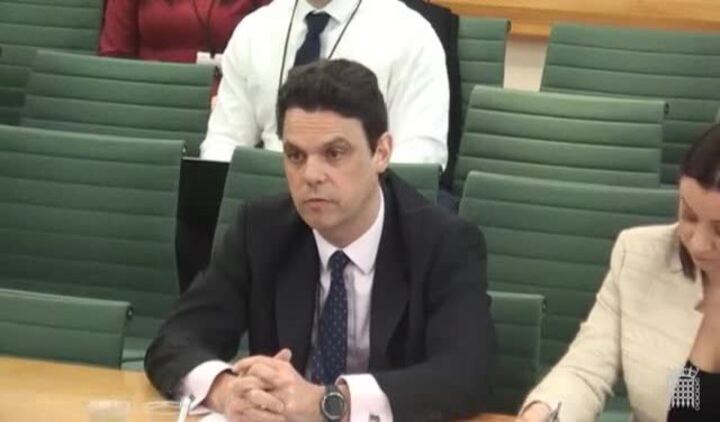This year’s Budget – which had been delayed from its originally planned announcement in November last year – featured a number of financial aids beneficial to food and drink firms, including a duty freeze on alcoholic drinks, and a £1m fund to support Scottish exports.
The Scotch Whisky Association (SWA) welcomed the continued freeze on spirits and additional support for the industry through a £10m green energy fund.
However, chief executive Karen Betts said the industry needed continued support through the upcoming review of UK alcohol taxation and while exports remained subject to US tariffs.
“The fact remains that duty on spirits in the UK is already very high and puts Scotch whisky at a competitive disadvantage to wine, beer and cider, with £3 in every £4 spent on an average-price bottle of Scotch whisky going to the government in tax,” said Betts.
Clearer taxation on alcohol
“The review of alcohol taxation is an important opportunity to address that. The Treasury should move quickly to ensure that alcohol taxation is clearer for consumers, fairer for producers and that it supports important domestic products like Scotch whisky.”
Betts commended the Government for reinforcing its commitment to resolving the ongoing tariff dispute with the US.
“We look forward to working with Government and others to implement these policies and ensure that Scotch whisky can continue to grow and contribute to the UK economy,” she added.
The National Farmers Union (NFU) was eager to see more detail on the Government’s proposed £640m nature for climate fund and what role is seen for food production within it.
NFU president Minette Batters added: “Finally, we recognise the Government’s commitments to helping small businesses with the impacts of the coronavirus.
“The commitment to cover statutory sick pay costs, providing business rates relief for many small businesses and mobilising banks’ lending for SMEs will help to provide resilience and support cash flow in these difficult circumstances.”
Regency Purchasing Group said the budget provided much need relief for UK food producers.
Managing director Alex Demetriou added: “Over the past year, there has been a growing feeling that the UK should be more self-sufficient in the production of its own food, initially prompted by the potential difficulties of trade after Brexit and the carbon footprint that comes with importing food.
“Now, with the potential impact that coronavirus may have on supply and travel, it is abundantly clear that the more we support our farmers and the more we can produce in the UK, the stronger and more sustainable we will be.”
Disproportionate support
The Food and Drink Federation’s chief executive Ian Wright said today’s Budget would receive mixed views from the industry, with some sectors of industry receiving more support from the Government than others.
While he welcomed short-term measures to help businesses manage the impact of COVID-19 and plans to extend Climate Change Agreements for two years, he disliked the Government’s plans to mitigate US tariffs on British goods.
“There will be many manufacturers, including producers of shortbread and dairy, that are badly affected by the punishing US tariffs on food and drink,” said Wright. “They will be feeling perplexed as to why they do not qualify for the additional support outlined today. We urge Government to re-assess the types of businesses that can access this support.”
Wright also criticised the decision to press ahead with a plastics tax, which he said would penalise producers that are bound by strict food safety rules affecting the packaging they use.
“We urge the Government to rethink how money raised through this tax can be used to transform the UK’s recycling infrastructure and will continue to work with them on the detail.”
Hilary Ross, head of Retail, Food & Hospitality at law firm DWF said the Government’s approach to business rates in this year’s budget could be the start of major changes in the system.
“The years abolition of business rates for thousands of small firms as part of emergency measures to deal with the economic fallout from coronavirus, will make it very difficult for the Government to distance themselves from the business rates issue in the future.
“This clearly shows that this is not just a local issue and it clears the way for a centralised approach to tackle a broken system after the crisis abates.”
COVID-19 measures
The Budget also introduced a series of measures to tackle COVID-19, the spread of which has been rapid in the past month alone. They include a new Coronavirus Business Interruption Loan Scheme, delivered by the British Business Bank. That will enable businesses with a turnover of no more than £41m to apply for a loan of up to £1.2m, with the Government covering up to 80% of any losses with no fees. This will unlock up to £1bn pounds to protect and support small businesses.
For businesses with fewer than 250 employees, the cost of providing 14 days of statutory sick pay per employee will be refunded by the Government in full. This will provide 2 million businesses with up to £2bn to cover the costs of large-scale sick leave.
A dedicated helpline has been set up to help businesses and self-employed individuals in financial distress and with outstanding tax liabilities to receive support with their tax affairs. Through this, businesses may be able to agree a bespoke Time to Pay arrangement.
There will be a £3,000 cash grant to 700,000 of the smallest businesses, delivered by Local Authorities, and worth £2bn.





